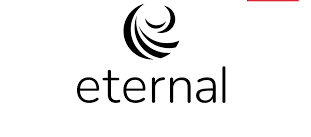SUMMARY POINTS
- Eternal posts a weak Q4 with slowing growth and rising costs.
- Sauce.VC bets big on D2C brand consolidation amid market pressure.
- India’s early-stage consumer market shows signs of saturation and shakeout.
- Founders are being forced to pivot from growth at all costs to lean and profitable models.
Eternal, the consumer lifestyle startup once seen as India’s answer to Everlane, has posted a weak Q4 FY24, with revenues down 18% quarter-on-quarter and operating costs rising sharply.
- Marketing spend ballooned by Rs 28 crore, leading to lower ROI across paid channels.
- Repeat purchase rate dropped from 42% to 31%, hinting at poor retention.
- Customer acquisition costs (CAC) hit an all-time high, breaching Rs 1,200 per customer.
The company’s rapid scale-up strategy now seems misaligned with today’s capital-tight market. Eternal was last valued at Rs 850 crore, but insiders say a flat or down round is on the table.
ALSO READ: PM Modi Gifts Rs 400 Cr for India’s First Creative Tech Institute in Mumbai
Case Study: Where Eternal May Have Slipped
Eternal’s product-market fit never fully stabilized. Despite big-budget influencer campaigns and celebrity-backed product lines, the brand struggled with:
- SKU sprawl: Launching too many new categories without depth.
- High inventory churn: Warehousing costs went up 23%.
- Lack of clarity in positioning: Confusing mix of sustainable messaging and premium pricing.
One former employee stated, “We were chasing growth, not loyalty. That works until funding dries up.”
Sauce.VC’s D2C Aggregation Strategy: Buy, Fix, Scale
While Eternal trims its sails, Sauce.VC is doubling down. The consumer-focused VC firm has quietly initiated a roll-up play, acquiring or co-building small D2C brands with high LTV and niche appeal.
Its recent moves include:
- Backing 3 Ayurvedic beauty brands and merging backend operations.
- Setting up a shared fulfillment and analytics center to cut costs.
- Repositioning brands for Tier 2+ digital audiences, skipping metros.
Sauce.VC’s strategy mirrors the Thrasio model, but with India-first tweaks—smaller bets, brand-led community building, and micro-influencer driven growth.
ALSO READ: From Fast Fashion to Data Personalization: Global Brand Strategies Indian Founders Must Adopt
What This Means for D2C Founders in India
The direct-to-consumer (D2C) wave is entering a new phase. Founders can no longer afford to burn through VC money without hitting core metrics.
Key takeaways for D2C startups:
- CAC vs LTV must be tightly tracked. Poor retention will bleed cash.
- Category leadership matters. Brands need sharp, differentiated positioning.
- Lean teams win. Several brands are now profitable with <20 employees.
- Offline is not the enemy. Hybrid retail is returning as a necessity.
Investor Mood: Sober, But Not Pessimistic
While the D2C hype has cooled, it isn’t dead. Investors are still bullish—but only for:
- Brands with real customer love and unit economics.
- Founders with deep category insight, not just marketing flair.
- Repeat use cases (skincare, petcare, health snacks) over novelty plays.
Sauce.VC’s bets suggest a belief that India’s consumer story is intact—just more grounded. Eternal’s shaky Q4 isn’t just about one company’s misstep. It reflects a wider shift from growth fantasy to execution reality.



